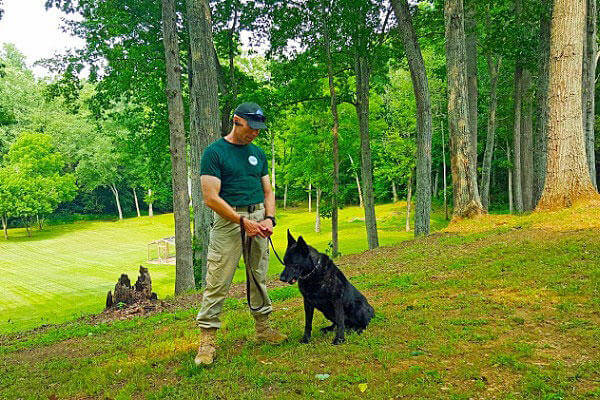A handful of key U.S. allies around the globe are considering the purchase of a new kind of bomb-sniffing dog designed to harness innate wolf-like hunting instincts and locate dangerous source odors much more quickly than conventional bomb-detecting dogs.
Iraq, Afghanistan, Saudi Arabia and Jordan are among the countries exploring dogs trained by a small Virginia-based firm called Global Dynamic Security, which was founded in 2010, company officials said.
"We are currently preparing to train and ship dogs to U.S. allies," Shawn Deehan, Global Dynamic Security founder and CEO, told Military.com in an interview.
Deehan claims his innovative training methods, proven in numerous test scenarios, are based on prolonged study of the natural hunting behaviors of wolves and thousands of years of evolution.
"Our behavioral science model is based on the evolved nature of canines and based on evolution itself. I studied wolves for more than 10 years and observed their behaviors. That was instructive, and it illuminated what was really happening with wolves," Deehan said.
Unlike most existing bomb-detecting dogs, which are usually led on a leash by a handler, Deehan's dogs are trained to rapidly use their natural hunting abilities without needing to be led by humans.
"We hyper-sensitize them to an odor. We amplify and intensify natural canine hunting behavior and allow them to perform off of a leash," he said.
Having trained thousands of dogs over the years, Deehan says he has succeeded recently in demonstrating how quickly his dogs can independently detect bomb, drug, ammunition and other key odors. The four demonstration dogs trained using Deehan's new method are able to detect source odors in a different, much faster way compared to most existing bomb-sniffing dogs currently used by the military and law enforcement communities, Deehan said.
The demonstration dogs include two Malinois, which are Belgian Shepherd dogs, a Dutch Shepherd and a Czechoslovakian Shepherd, Deehan said.
"We felt that in order to have integrity, we needed to prove the method 100 percent in a number of scenarios. In the last three years, our dogs have been as close to 100 percent reliable as they can be," he said.
For instance, Deehan said his dogs were able to locate a bomb-scented Q-tip buried in the mud in an upside-down salt shaker three acres away in less than four minutes.
"The salt shaker contained a Q-tip that had been in a bag containing bomb odor. The salt shaker was then put into a hole that was two inches in diameter. The holes were turned upside down and the shaker was put into the mud beneath the grass. The dog was starting from 120 yards away. The dog worked a three-and-a-half acre field. Our dog found it in around four minutes," Deehan said.
Deehan argues that most conventionally trained bomb-sniffing dogs, which are often brought through areas in grid pattern and typically led by humans, would likely need at least 45 minutes to an hour to find the same Q-tip.
"Dogs can follow the trail of a deer for three miles. Dogs have been hunting prey for millions of years. The conventional method has introduced human behavior into something where human beings were never present. We studied evolution itself in a way that no one has ever studied," he claimed.
Deehan plans to train thousands of these dogs and deliver them to interested U.S. allies around the globe. Each dog costs $110,000; however, that price includes a one-year maintenance, support and training contract, he said.




























